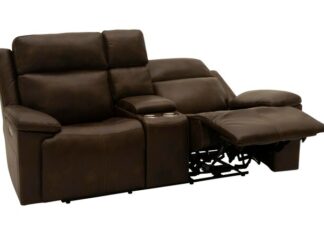The National Fire Protection Association (NFPA) research indicates that the presence of working smoke alarms significantly increases the likelihood that a home will escape destruction in the event of a fire. Sadly, only 45% of homes have operational smoke alarms. The risk of fire is higher for some individuals than others, including those who live alone, those with mobility issues, or families with children. If you or someone you know falls into one of these categories and you aren’t sure about your home’s current level of fire safety, read on to learn about the top 5 most well-known smoke alarms and how to choose the right one for your home.
Ionization Smoke Detectors
Table of Contents
Ionization smoke detectors are the most common type and account for more than 80% of all detectors sold. They are easier and less expensive to install than other types of detectors, and they are less expensive to maintain as well. The biggest drawback of ionization detectors is that they are less accurate in detecting smoldering fires and in distinguishing them from false alarms caused by cooking smoke, steam, or dust.
Photoelectric Smoke Detectors
Photoelectric detectors are more expensive and more difficult to install than ionization models, but they are more reliable at sensing smoldering fires and distinguishing them from false alarms caused by cooking smoke, steam, or dust. These devices work by projecting a beam of light through a chamber of smoke to a light-sensitive device on the other side. When smoke enters the chamber, it interrupts the light beam and triggers a change in current that is picked up by the light-sensitive device. If you’re unsure about how to best install smoke detectors then please consult a professional smoke alarm installer.
Smart Smoke Detectors
Smart smoke detectors can send signals to your phone or other device connected to the internet. Many of these models also have an app that allows you to access your detector’s status from anywhere. This allows you to stay connected with your home and make sure that it is appropriately protected, even if you are away from home. If you have a smart detector, you can program it to notify you when smoke is present so that you can take action before it becomes serious. You can also program it to shut off the furnace if there is a fire, and you can set it to alert other people who are important to you.
Combination Smoke Detectors
Combination smoke detectors are more expensive than ionization models but less expensive than photoelectric ones. These detectors use both ionization and photoelectric sensing to reduce false alarms triggered by steam and cooking smoke. Combination detectors are more accurate than ionization detectors at sensing both burning and smoldering fires and distinguishing false alarms caused by cooking smoke, steam, or dust.
CO Detectors
Carbon monoxide detectors have been required by law in all homes since the 1990s, but many homeowners do not have one. Carbon monoxide is an invisible, odorless, and deadly gas that is produced by combustion appliances, such as gas stoves, gas dryers, wood stoves, and unvented gas or kerosene heaters. If you have any of these appliances in your home, you should have a CO detector installed. CO detectors are usually ionization smoke detectors that are designed to sound sooner than other types of detectors when carbon monoxide is present. CO detectors may be battery-operated, plug-in, or hardwired.
Home Security Alarms
An important distinction is to note that smoke alarms and security alarms are separate devices. For many, this goes without saying but we have noted confusion on this in the past. A home security alarm system will help prevent burglars from entering your home. That’s a useful deterrent and something you might want to consider. A smoke alarm will keep you safe in the event of a fire.
Conclusion
Smoke alarms are an essential part of any house. They should be installed in every room, outside every sleeping area, and on every level of your house. When you install new smoke alarms, make sure they are the type recommended by the National Fire Protection Association. The best type of smoke alarm for your home will depend on your specific needs and situation. If you aren’t sure which type you should install, talk to a professional about your options.










